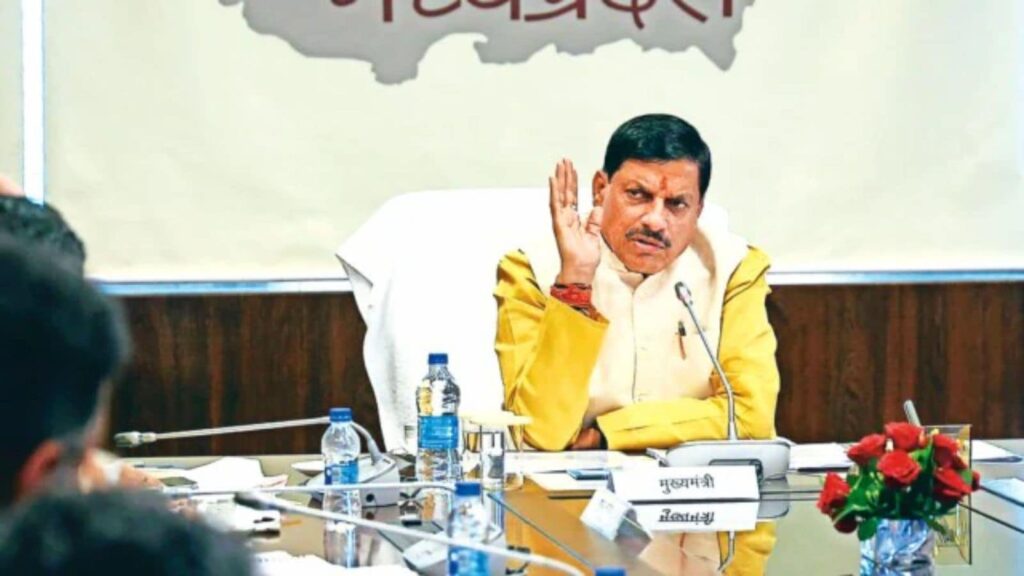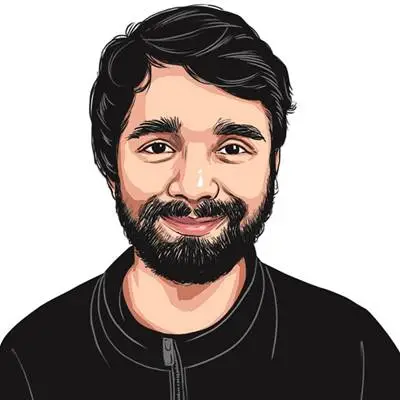New DelhiOctober 9, 2025 02:19 PM IST
First published on: Oct 9, 2025 at 02:19 PM IST
The Mohan Yadav-led BJP government in Madhya Pradesh, which is making a case in the Supreme Court to enhance reservation for Other Backward Classes (OBCs) from 14% to 27% – a move that would breach the top court’s 50% quota ceiling – seems to be echoing Leader of the Opposition Rahul Gandhi’s “jitni abaadi, utna haq (representation proportional to population)” pitch.
Citing 2011 Census data in its affidavit filed on September 23, ahead of the apex court hearing that began Wednesday, the Madhya Pradesh government said disadvantaged communities such as Scheduled Castes (SCs), with 15.6% of the population, Scheduled Tribes (STs), with 21.1%, and OBCs, with over 51%, collectively account for more than 87% of the state’s population.
“Yet, OBCs were earlier confined to only 14% reservation, which is wholly disproportionate to their demographic share,” it said, adding that the move to enhance reservation is a “Constitutionally mandated corrective step”.
Since 2023, as part of its larger social justice push and call for greater representation for SCs, STs, and OBCs, Gandhi and the Congress have been vocal advocates of scrapping the 50% cap on reservations and conducting a caste census. In September that year, the Congress Working Committee (CWC) – the party’s highest decision-making body – had met in Hyderabad under the chairmanship of AICC president Mallikarjun Kharge and passed a resolution calling for an increase in the upper limit of reservations for these groups.
“The issue will continue to be the Congress’s pitch. It is something the party will stick to and keep taking it to the people in the future as well,” a Congress leader said.
Ahead of last year’s Lok Sabha polls, Gandhi had repeatedly said the 50% ceiling on reservations would be removed if the Congress was voted to power. The issue was also part of the party’s manifesto, which promised to implement reservations in private educational institutions. Gandhi has since reiterated his demand for a caste census and removal of the 50% cap several times in Parliament after assuming the role of Leader of the Opposition.
Meanwhile, justifying its decision to enhance the OBC quota, the Yadav government said it acted on “special circumstances” and long-term data showing that OBC communities continue to face social and educational disadvantages. “A sizeable section of the state’s population lives in far-flung and remote areas, far away from the mainstream of national life,” the affidavit stated.
The government also referred to the 1983 Mahajan Commission report, which had recommended 35% reservation for OBCs after studying indicators such as income and access to education. It added that the state had amended the Madhya Pradesh Lok Seva Act in 2019 (through an ordinance) to raise the OBC quota to 27%, after considering similar indicators in 2003 during the Digvijaya Singh-led Congress government.
The Madhya Pradesh High Court in 2022 put a stay on the implementation of the ordinance but restricted it to medical education. Last year, the Supreme Court transferred the case to itself and initiated suo motu proceedings in the matter.
Pointing out that recruitment in 12 departments has been stalled since 2022 due to pending cases, leaving 13% of government posts vacant, the Madhya Pradesh affidavit said, “The state government has a prima facie strong case and is suffering irreparable loss and injury if the relief sought is not granted.”
Citing a 2023 study commissioned by the state government and conducted by Dr B R Ambedkar Social Sciences University, it said the findings “underscore a stark disconnect between the demographic strength and representation of OBCs in Madhya Pradesh”. The report stated that “OBCs continue to face deep-rooted social discrimination, exclusion, and marginalisation” and that “despite their numbers, they remain socially backward in practice”.
Terming the issue as a “matter of justice for all sections of society”, BJP Madhya Pradesh spokesperson Ashish Agarwal said, “The Congress has been in power for many years but did not do anything to ensure justice for any section of society. The (OBC quota) issue is in the top court, which will take a decision on it. Both law and logic are on our side. We trust the judiciary and hope it will give 27% reservation for OBCs in the state.”



